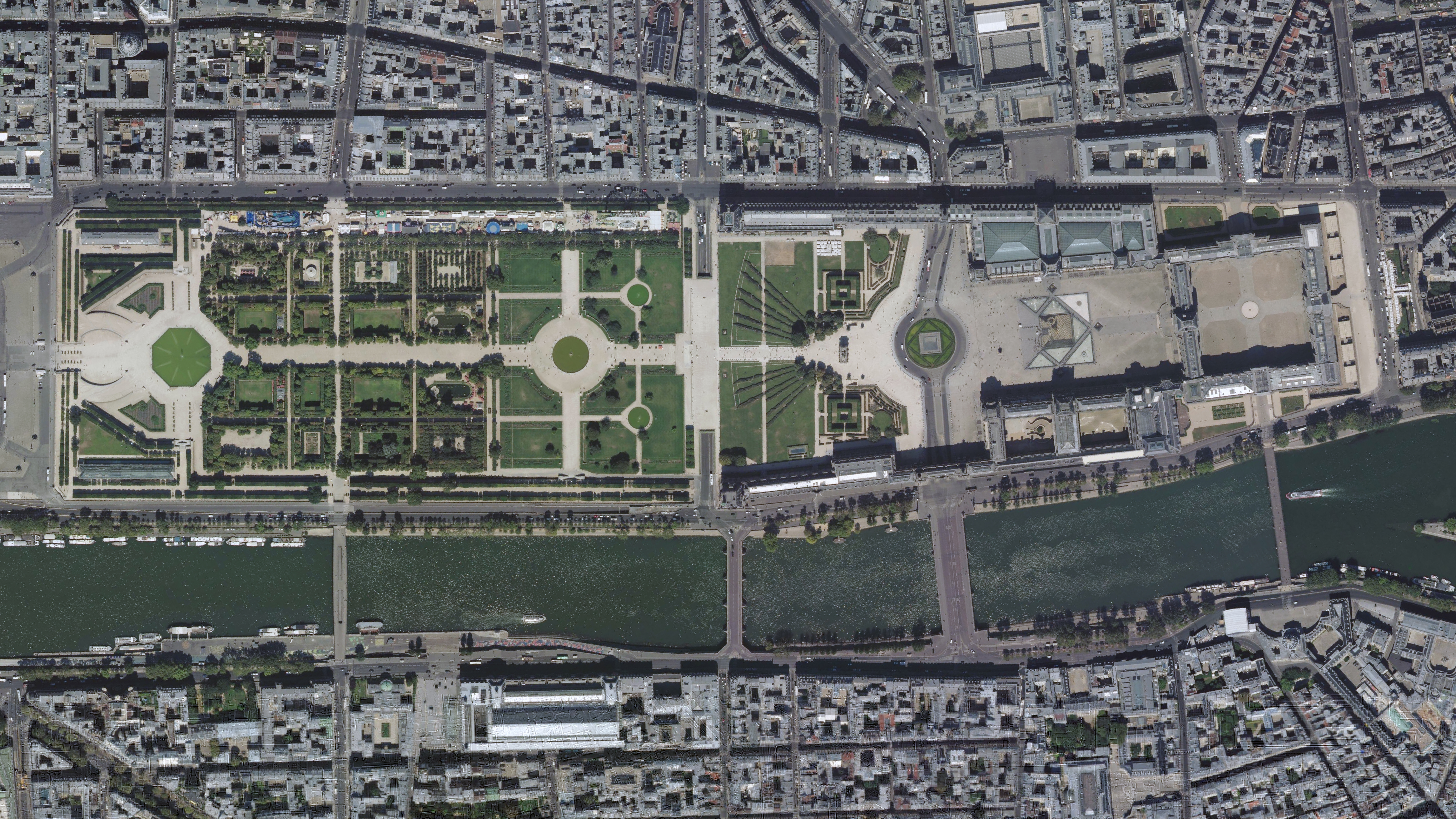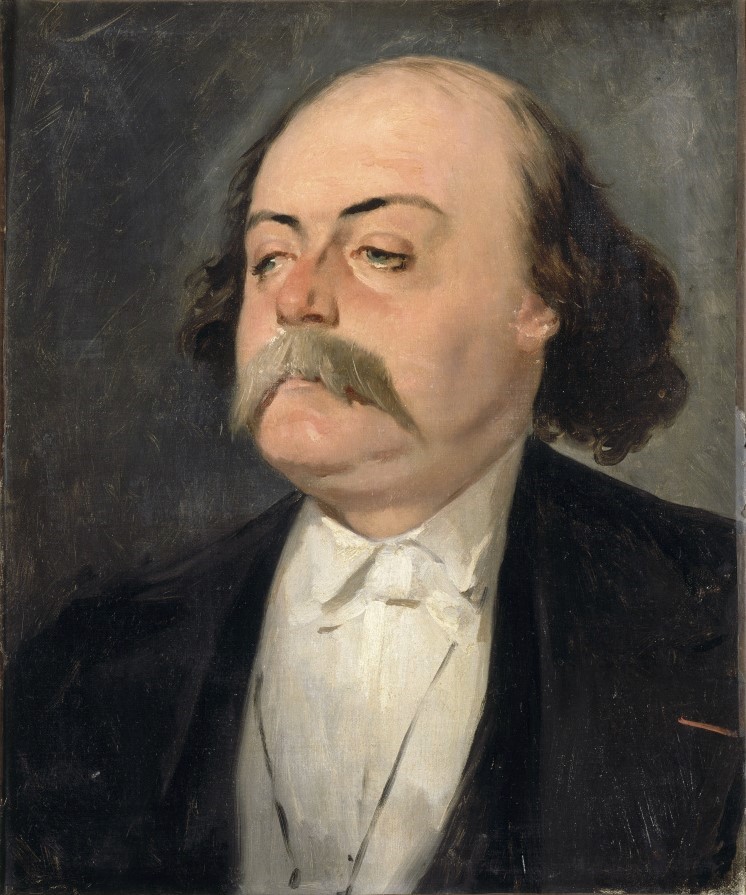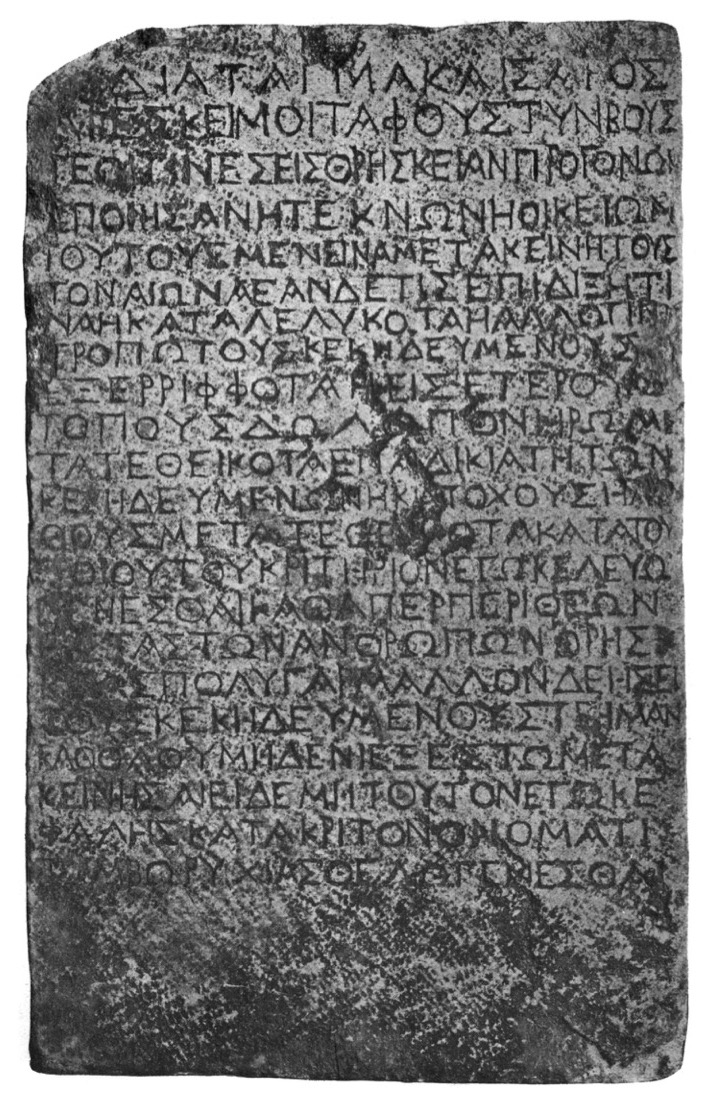|
Wilhelm Fröhner
Wilhelm Fröhner or Guillaume Frœhner (17 August 1834 – 22 May 1925) was a curator at the Musée du Louvre, an archaeological researcher and collector of antiquities in Paris. As a historian, he publicly rejected Gustave Flaubert's depiction of infanticide in Punic culture, described in ''Salammbô''. Among his private purchases was the Nazareth Inscription, an imperial Roman inscription in Greek that was sent to him from Nazareth. Unfortunately, part of his working library was lost in the fire at the Duchess Anna Amalia Library The Duchess Anna Amalia Library (German: ''Herzogin Anna Amalia Bibliothek'') in Weimar, Germany, houses a major collection of German literature and historical documents. In 1991, the tricentennial of its opening to the public, the Ducal Library ... in 2004. Notes Academic staff of the École du Louvre 1834 births 1925 deaths French art historians French male non-fiction writers {{France-art-historian-stub ... [...More Info...] [...Related Items...] OR: [Wikipedia] [Google] [Baidu] |
Musée Du Louvre
The Louvre ( ), or the Louvre Museum ( ), is the world's most-visited museum, and an historic landmark in Paris, France. It is the home of some of the best-known works of art, including the ''Mona Lisa'' and the ''Venus de Milo''. A central landmark of the city, it is located on the Right Bank of the Seine in the city's 1st arrondissement (district or ward). At any given point in time, approximately 38,000 objects from prehistory to the 21st century are being exhibited over an area of 72,735 square meters (782,910 square feet). Attendance in 2021 was 2.8 million due to the COVID-19 pandemic, up five percent from 2020, but far below pre-COVID attendance. Nonetheless, the Louvre still topped the list of most-visited art museums in the world in 2021."The Art Newspaper", 30 March 2021. The museum is housed in the Louvre Palace, originally built in the late 12th to 13th century under Philip II. Remnants of the Medieval Louvre fortress are visible in the basement ... [...More Info...] [...Related Items...] OR: [Wikipedia] [Google] [Baidu] |
Antiquities
Antiquities are objects from antiquity, especially the civilizations of the Mediterranean: the Classical antiquity of Greece and Rome, Ancient Egypt and the other Ancient Near Eastern cultures. Artifacts from earlier periods such as the Mesolithic, and other civilizations from Asia and elsewhere may also be covered by the term. The phenomenon of giving a high value to ancient artifacts is found in other cultures, notably China, where Chinese ritual bronzes, three to two thousand years old, have been avidly collected and imitated for centuries, and the Pre-Columbian cultures of Mesoamerica, where in particular the artifacts of the earliest Olmec civilization are found reburied in significant sites of later cultures up to the Spanish Conquest. A person who studies antiquities, as opposed to just collecting them, is often called an antiquarian. Definition The definition of the term is not always precise, and institutional definitions such as museum "Departments of Antiquities ... [...More Info...] [...Related Items...] OR: [Wikipedia] [Google] [Baidu] |
Paris
Paris () is the capital and most populous city of France, with an estimated population of 2,165,423 residents in 2019 in an area of more than 105 km² (41 sq mi), making it the 30th most densely populated city in the world in 2020. Since the 17th century, Paris has been one of the world's major centres of finance, diplomacy, commerce, fashion, gastronomy, and science. For its leading role in the arts and sciences, as well as its very early system of street lighting, in the 19th century it became known as "the City of Light". Like London, prior to the Second World War, it was also sometimes called the capital of the world. The City of Paris is the centre of the Île-de-France region, or Paris Region, with an estimated population of 12,262,544 in 2019, or about 19% of the population of France, making the region France's primate city. The Paris Region had a GDP of €739 billion ($743 billion) in 2019, which is the highest in Europe. According to the Economist Intelli ... [...More Info...] [...Related Items...] OR: [Wikipedia] [Google] [Baidu] |
Gustave Flaubert
Gustave Flaubert ( , , ; 12 December 1821 – 8 May 1880) was a French novelist. Highly influential, he has been considered the leading exponent of literary realism in his country. According to the literary theorist Kornelije Kvas, "in Flaubert, realism strives for formal perfection, so the presentation of reality tends to be neutral, emphasizing the values and importance of style as an objective method of presenting reality". He is known especially for his debut novel ''Madame Bovary'' (1857), his ''Correspondence'', and his scrupulous devotion to his style and aesthetics. The celebrated short story writer Guy de Maupassant was a protégé of Flaubert. Life Early life and education Flaubert was born in Rouen, in the Seine-Maritime department of Upper Normandy, in northern France. He was the second son of Anne Justine Caroline (née Fleuriot; 1793–1872) and Achille-Cléophas Flaubert (1784–1846), director and senior surgeon of the major hospital in Rouen. He began writ ... [...More Info...] [...Related Items...] OR: [Wikipedia] [Google] [Baidu] |
Infanticide
Infanticide (or infant homicide) is the intentional killing of infants or offspring. Infanticide was a widespread practice throughout human history that was mainly used to dispose of unwanted children, its main purpose is the prevention of resources being spent on weak or disabled offspring. Unwanted infants were normally abandoned to die of exposure, but in some societies they were deliberately killed. Infanticide is now widely illegal, but in some places the practice is tolerated or the prohibition is not strictly enforced. Most Stone Age human societies routinely practiced infanticide, and estimates of children killed by infanticide in the Mesolithic and Neolithic eras vary from 15 to 50 percent. Infanticide continued to be common in most societies after the historical era began, including ancient Greece, ancient Rome, the Phoenicians, ancient China, ancient Japan, Aboriginal Australia, Native Americans, and Native Alaskans. Infanticide became forbidden in Europe and t ... [...More Info...] [...Related Items...] OR: [Wikipedia] [Google] [Baidu] |
Punic
The Punic people, or western Phoenicians, were a Semitic people in the Western Mediterranean who migrated from Tyre, Phoenicia to North Africa during the Early Iron Age. In modern scholarship, the term ''Punic'' – the Latin equivalent of the Greek-derived term ''Phoenician'' – is exclusively used to refer to Phoenicians in the western Mediterranean, following the line of the Greek East and Latin West. The largest Punic settlement was Ancient Carthage (essentially modern Tunis), but there were 300 other settlements along the North African coast from Leptis Magna in modern Libya to Mogador in southern Morocco, as well as western Sicily, southern Sardinia, the southern and western coasts of the Iberian Peninsula, Malta, and Ibiza. Their language, Punic, was a dialect of Phoenician, one of the Northwest Semitic languages originating in the Levant. Literary sources report two moments of Tyrian settlements in the west, the first in the 12th century BCE (the cities Utica, Lix ... [...More Info...] [...Related Items...] OR: [Wikipedia] [Google] [Baidu] |
Salammbô
''Salammbô'' (1862) is a historical novel by Gustave Flaubert. It is set in Carthage immediately before and during the Mercenary Revolt (241–237 BCE). Flaubert's principal source was Book I of the '' Histories'', written by the Greek historian Polybius. The novel was enormously popular when first published and jumpstarted a renewed interest in the history of the Roman Republic's conflict with the North African Phoenician outpost of Carthage. Genesis After the legal troubles that followed the publication of ''Madame Bovary'', when he was tried and acquitted on charges of "immorality", Flaubert sought a less controversial subject for his next novel. In 1857, Flaubert decided to conduct research in Carthage, writing in March to Félicien de Saulcy, a French archeologist about his plans. In a letter to Madame de Chantepie dated 23 January 1858, he described his anticipation: "I absolutely have to go to Africa. This is why, around the end of March, I will go back to the co ... [...More Info...] [...Related Items...] OR: [Wikipedia] [Google] [Baidu] |
Nazareth Inscription
The Nazareth Inscription or Nazareth decree is a marble tablet inscribed in Greek with an edict from an unnamed Caesar ordering capital punishment for anyone caught disturbing graves or tombs. It is dated on the basis of epigraphy to the first half of the 1st century AD. Its provenance is unknown, but a French collector acquired the stone from Nazareth. It is now in the collections of the Louvre. The text is read by scholars in the context of Roman law pertaining to exhumation and reburial, mentioned also by Pliny. The inscription is of interest to some authors for its indirect relationship to the historicity of Jesus, even though the text contains no reference to Jesus of Nazareth. A 2020 study of the marble's isotopes showed that the tablet came from a quarry in the Greek island of Kos, casting much doubt on the theory that it has any relationship to Jesus, and it may instead have been inscribed as a reaction to the desecration of the grave of the Kos tyrant Nikias circa 20 ... [...More Info...] [...Related Items...] OR: [Wikipedia] [Google] [Baidu] |
Nazareth
Nazareth ( ; ar, النَّاصِرَة, ''an-Nāṣira''; he, נָצְרַת, ''Nāṣəraṯ''; arc, ܢܨܪܬ, ''Naṣrath'') is the largest city in the Northern District of Israel. Nazareth is known as "the Arab capital of Israel". In its population was . The inhabitants are predominantly Arab citizens of Israel, of whom 69% are Muslim and 30.9% Christian. Findings unearthed in the neighboring Qafzeh Cave show that the area around Nazareth was populated in the prehistoric period. Nazareth was a Jewish village during the Roman and Byzantine periods, and is described in the New Testament as the childhood home of Jesus. It became an important city during the Crusades after Tancred established it as the capital of the Principality of Galilee. The city declined under Mamluk rule, and following the Ottoman conquest, the city's Christian residents were expelled, only to return once Fakhr ad-Dīn II granted them permission to do so. In the 18th century, Zahir al-Umar transfo ... [...More Info...] [...Related Items...] OR: [Wikipedia] [Google] [Baidu] |
Duchess Anna Amalia Library
The Duchess Anna Amalia Library (German: ''Herzogin Anna Amalia Bibliothek'') in Weimar, Germany, houses a major collection of German literature and historical documents. In 1991, the tricentennial of its opening to the public, the Ducal Library was renamed for Duchess Anna Amalia. Today, the library is a public research library for literature and art history. The main focus is German literature from the Classical and the late Romantic eras. The library was inscribed on the UNESCO World Heritage List as part of the Classical Weimar site because of its testimony to the global cultural importance of Weimar during the late 18th and early 19th centuries during the Weimar Classicism movement. In 2004 a fire destroyed the main wing and a substantial part of the collection; restoration of salvaged volumes lasted until 2015. Contents The library contains: * 1,000,000 books * 2,000 medieval and early modern manuscripts * 600 ancestral registers * 10,000 maps * 4,000 musical scores ... [...More Info...] [...Related Items...] OR: [Wikipedia] [Google] [Baidu] |
Academic Staff Of The École Du Louvre
An academy (Attic Greek: Ἀκαδήμεια; Koine Greek Ἀκαδημία) is an institution of secondary education, secondary or tertiary education, tertiary higher education, higher learning (and generally also research or honorary membership). The name traces back to Plato's school of philosophy, founded approximately 385 BC at Akademia, a sanctuary of Athena, the goddess of wisdom and Skills, skill, north of Ancient Athens, Athens, Greece. Etymology The word comes from the ''Academy'' in ancient Greece, which derives from the Athenian hero, ''Akademos''. Outside the city walls of Athens, the Gymnasium (ancient Greece), gymnasium was made famous by Plato as a center of learning. The sacred space, dedicated to the goddess of wisdom, Athena, had formerly been an olive Grove (nature), grove, hence the expression "the groves of Academe". In these gardens, the philosopher Plato conversed with followers. Plato developed his sessions into a method of teaching philosophy and in 3 ... [...More Info...] [...Related Items...] OR: [Wikipedia] [Google] [Baidu] |
1834 Births
Events January–March * January – The Wilmington and Raleigh Railroad is chartered in Wilmington, North Carolina. * January 1 – Zollverein (Germany): Customs charges are abolished at borders within its member states. * January 3 – The government of Mexico imprisons Stephen F. Austin in Mexico City. * February 13 – Robert Owen organizes the Grand National Consolidated Trades Union in the United Kingdom. * March 6 – York, Upper Canada, is incorporated as Toronto. * March 11 – The United States Survey of the Coast is transferred to the Department of the Navy. * March 14 – John Herschel discovers the open cluster of stars now known as NGC 3603, observing from the Cape of Good Hope. * March 28 – Andrew Jackson is censured by the United States Congress (expunged in 1837). April–June * April 10 – The LaLaurie mansion in New Orleans burns, and Madame Marie Delphine LaLaurie flees to France. * April 14 – The Whig Party is officially named by Unit ... [...More Info...] [...Related Items...] OR: [Wikipedia] [Google] [Baidu] |

.jpg)






